Diplomacy II
Tanaka Hitoshi*Reviewing the most recent developments in security and military cooperation as well as diplomacy over the Korean Peninsula and the rise of China, this second view of the prospects for Sino-Japanese relations finds hope in what has been transpiring. The year 2018 shows signs of being a turning point in the relationship, leading to a win-win outcome for the region.
Japan-China Security Cooperation
When Premier Li Keqiang visited Tokyo in May 2018 he signed an agreement with Prime Minister Abe Shinzo to establish the Japan-China Maritime and Aerial Communication Mechanism (MACM), which subsequently went into operation in June 2018. This has been cited as evidence that relations are recovering from the lows of previous years when they were dogged by frictions over history and territorial issues. But just how significant a development is this in discerning the future trajectory and potential of Japan-China security relations?
The MACM is an important development for the benefits it brings to enhance communications between the Self-Defense Forces (SDF) and People’s Liberation Army (PLA) as well as the political commitment it signals to deepen cooperation and build trust. Yet there are a number of crucial factors beyond the scope of the MACM which will significantly contribute to determining the extent to which the broader regional security environment is conducive to the promotion of shared Japan-China security interests.
Japan and China should make the most of the opportunity the MACM presents to maximize cooperation. At the same time, both countries should take a big picture view and work together to foster an inclusive regional environment conducive to the promotion of shared security interests. To this end, Japan and China should coordinate cooperation to support diplomatic efforts for the realization of a sustainable peace on the Korean Peninsula and to support China’s rise in a manner which engenders positive-sum cooperation and eschews the pitfalls of zero-sum strategic rivalry.
Japan-China Military Cooperation
The establishment of the MACM delivers a number of immediate benefits. It provides a radio communication channel for SDF and PLA vessels and aircraft to communicate with each other in order to prevent accidental collisions. It is expected that common rules will be developed for communication protocols between SDF and PLA crews. Japan and China are committed under the auspices of the mechanism to establish a hotline between defense ministry authorities. And an annual meeting will be held between SDF and PLA officials at the director-general level in order to discuss the operation of the communication mechanism and to rectify technical issues.
Japan and China should also consider further expanding cooperation under MACM. First, official exchanges of SDF and PLA personnel should be implemented. The efforts of the Sasakawa Peace Foundation and the China Institute for International Strategic Studies saw quasi-official exchanges of uniformed personnel between 2001 and 2011, which were restarted again in 2018 after a hiatus resulting from tensions over the Senkaku Islands. The MACM provides an opportunity to make official, regularize, and deepen such exchanges. This will help to build mutual confidence and trust among a new generation of SDF and PLA personnel.
Second, the MACM provides an opportunity to conduct joint operations in non-traditional security areas such as humanitarian assistance and disaster relief (HA/DR). Such operations have brought Japan and China together before. For instance, Japan dispatched a Disaster Relief Rescue Team and a Disaster Relief Medical Team to China in 2008 after the Sichuan earthquake and China dispatched a Search and Rescue Team to Japan in 2011 after the 3/11 Tohoku earthquake-tsunami-nuclear triple disaster. With climate change exacerbating extreme weather patterns, East Asia is likely to suffer future natural disasters, and coordinated cooperation between Japan and China in conducting HA/DR would increase the efficiency of such operations.
Third, Japan and China should utilize the MACM to help mitigate tensions surrounding the Senkaku Islands. This is the primary test for it, which most observers are following.
Korean Peninsula Diplomacy
One of the most pressing issues which will significantly influence the potential of Japan-China security cooperation over the longer term is the ongoing diplomatic negotiations surrounding the Korean Peninsula. Japan and China should support international efforts to realize complete denuclearization and a sustainable peace regime on the Korean Peninsula in the wake of the historic June 12 Singapore summit between President Donald Trump and North Korean leader Kim Jong-un. This would help to promote peace and stability across Northeast Asia and enable Japan and China to focus cooperation in other areas.
Continued international engagement with North Korea after the Singapore summit is likely to be a long-term process and will hinge on two key factors. First, how willing is North Korea to denuclearize? Second, what sort of security provisions will North Korea require to ensure its post-denuclearization survival?
There is an opportunity to realize the complete denuclearization of the Korean Peninsula if North Korea is given the right incentives. Using its nuclear devices as a weapon of war is not particularly useful for it. Such an act risks triggering a full-scale war, and given the overwhelming military strength of the ROK-US Combined Forces it would be an act of suicide for the Kim Jong-un regime. The credibility of North Korea’s nuclear weapons as a deterrent vis-à-vis the United States is also dubious given the vast differences in the actual nuclear capabilities of the two countries. Instead the most useful function North Korea’s nuclear weapons can play is as a bargaining chip in exchange for robust security guarantees, including a sustainable peace regime on the Korean Peninsula, in order to guarantee its post-denuclearization survival.
Continued and patient follow through is now needed for US-North Korea negotiations toward a denuclearization roadmap. As a first step, North Korea should make an exhaustive declaration of its nuclear facilities and assets. This will then open the way for meaningful discussions on inspections, dismantlement, and verification procedures.
The more uncertain part of the Korean peace equation is the provision of security guarantees to North Korea. North Korea’s demands may include a formal declaration of the end of the Korean War, the conversion of the 1953 Korean Armistice Agreement into a permanent peace regime, and the normalization of its diplomatic relations with the United States and Japan. Given the low level of US-North Korea trust, however, it is unclear what other security provisions North Korea may demand.
The delivery of security provisions to North Korea needs to be done in a way in which the future of regional security arrangements is certain. A permanent peace regime would necessitate the dismantlement of the United Nations Command (UNC), which has continued to play a key role in implementing the armistice and supporting South Korea’s defense. Such a change would impact the Northeast Asian security landscape. Japan would be affected too as the UN Command-Rear, under the umbrella of the UNC, is located at the Yokota Air Base west of Tokyo. Yet even after dismantlement of the UNC, the US-ROK alliance and the US-Japan alliance should still continue to function as before.
Negotiating security provisions, including a permanent peace regime, may be best achieved through intensive consultations and coordination including all regional stakeholders, such as through reconvening the Six-Party Talks. Such a buy-in from all the major regional actors would help to ensure the longevity of any agreement. Success on this front would also open the possibility to deepen the scope of Japan-China bilateral cooperation as well as the Six-Party Talks to include soft security cooperation such as confidence building measures, regional non-proliferation measures, and joint HA/DR operations.
However, if North Korea were to demand the dismantlement of the US-ROK alliance, it would put the United States in an awkward position and the Singapore agreement would risk becoming a dead letter. In such a scenario where denuclearization falters, there is a critical need for cooperation within the international community in order to maintain sanctions pressure on North Korea. In particular, China’s response would be critical. China’s serious participation in implementing sanctions since mid-2017 was one of the necessary conditions which contributed to bringing North Korea to the negotiating table. The United States, South Korea, and Japan should coordinate cooperation with China based on a common recognition of the threat of a nuclear North Korea.
The Rise of China
As China’s economic and military power continues to rise, there is anxiety around the region about how it will exert its increasing power. In other words, will the region’s relations with China come to be characterized over the long term by strategic rivalry or by shared peace and prosperity under an inclusive regional order? There are a number of risk factors which need to be addressed in order to steer regional relations with China toward a positive-sum cooperative approach. They include the domestic politics of China’s reform and economic development agenda as well as the future character of US-China relations. How these factors develop will play a large role in determining the future nature of Japan-China relations.
Nationalism continues to be a pillar on which the Communist Party of China (CPC) relies for its domestic political legitimacy. Using the concept of the “China Dream,” President Xi Jinping has set 2049—the 100th anniversary of the founding of the People’s Republic of China—as the target year for the “great rejuvenation” of the Chinese nation as a modern, developed, and prosperous society. The risk of this nationalist rhetoric is that if economic development does not hit its expected growth objectives, the CPC may be tempted to resort to antagonistic nationalism vis-à-vis the United States and Japan as a means of diverting citizens’ attention from domestic development and governance shortcomings.
US-China relations will also significantly affect the nature of China’s relations with the region including with Japan. US-China relations have been further strained since the Trump administration took office. The United States today views China as a strategic competitor and has identified it as a revisionist power in the December 2017 National Security Strategy. At the same time, the trade war between the United States and China is already beginning to spiral as the Trump administration embarks on its campaign, based on specious economic reasoning, to eliminate trade deficits. Tellingly, the list of tariffs already imposed on China by the United States reveals a focus on applying pressure on high-tech industries. Thus, it appears likely that the United States will seek to manage the rise of China using both its economic and military power.
This situation places Japan in a difficult position. On the one hand, Japan will continue to uphold the US-Japan alliance as the cornerstone of its defense policy. The alliance relationship means that how the United States approaches China will affect Japan’s relations with China too. At the same time, Japan is uncomfortable with US unilateral protectionist actions based on Section 301 of the Trade Act. In addition, the Japanese and Chinese economies have become increasingly interdependent. China is Japan’s largest trading partner and Japan-China trade is now the third biggest two-way bilateral trade relationship in the world. Thus, Japan should seek to act as a bridge between the United States and China to help mitigate US-China tensions. In order to bring China into the fold as a responsible regional stakeholder a shared understanding of an inclusive and liberal regional order based on international law must be fostered between the United States and China.
Conclusion
The future of Japan-China relations is at a crossroads. The implementation of the MACM is a positive development and will help to ease tensions, avoid accidental conflict, and build trust. Japan and China should further explore opportunities to expand cooperation under the MACM to maximize its benefits. At the same time, however, in order to foster a positive Japan-China relationship both countries must also address the big picture. To best lay the foundations for cooperative relations over the long term, Japan and China should support complete denuclearization and the establishment of a sustainable peace regime on the Korean Peninsula. Japan and China must also work together to promote measures to incentivize a positive-sum approach to the region’s relations with China. Building an inclusive and liberal regional order based on international law is the only way to guarantee the right foundation for Japan-China cooperation into the future and a win-win situation for the region.
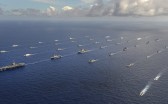
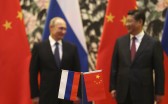
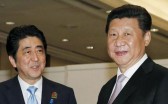
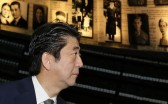
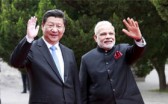

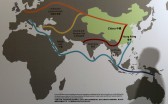
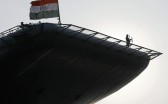

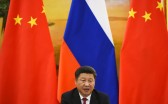
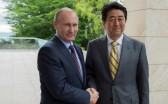
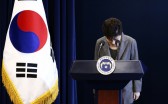

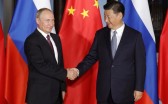
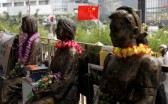
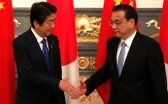
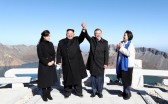

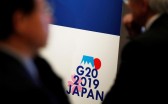

 Print
Print Email
Email Share
Share Facebook
Facebook Twitter
Twitter LinkedIn
LinkedIn